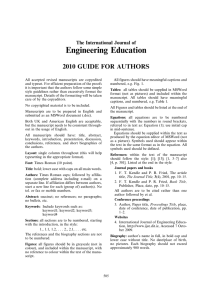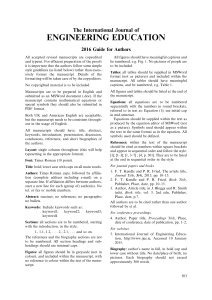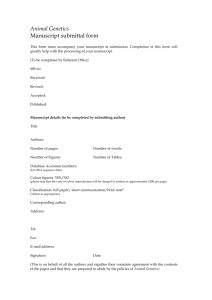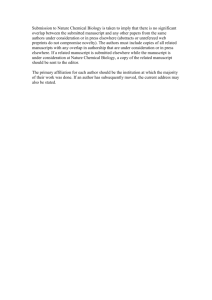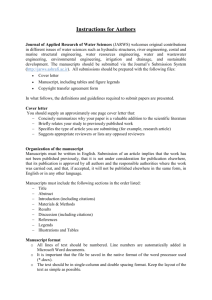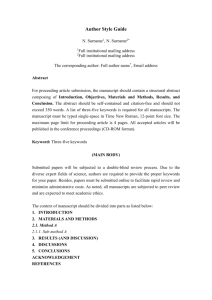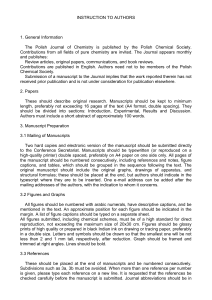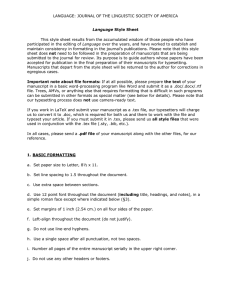2012 Guide for Authors
advertisement
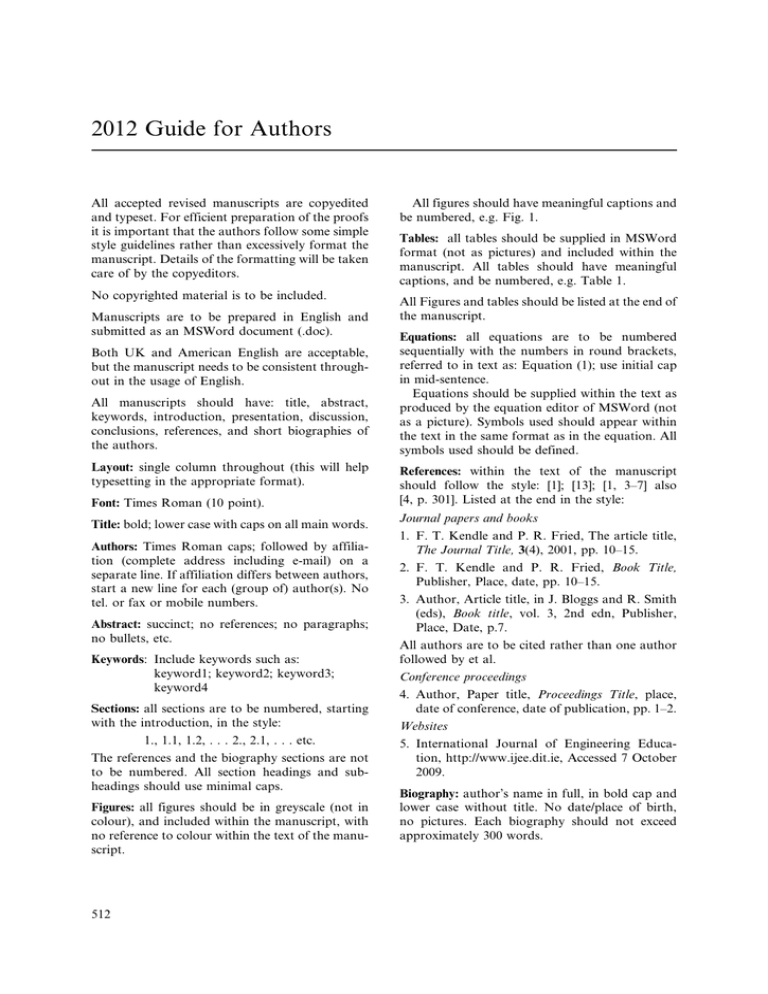
2012 Guide for Authors All accepted revised manuscripts are copyedited and typeset. For efficient preparation of the proofs it is important that the authors follow some simple style guidelines rather than excessively format the manuscript. Details of the formatting will be taken care of by the copyeditors. No copyrighted material is to be included. Manuscripts are to be prepared in English and submitted as an MSWord document (.doc). Both UK and American English are acceptable, but the manuscript needs to be consistent throughout in the usage of English. All manuscripts should have: title, abstract, keywords, introduction, presentation, discussion, conclusions, references, and short biographies of the authors. Layout: single column throughout (this will help typesetting in the appropriate format). Font: Times Roman (10 point). Title: bold; lower case with caps on all main words. Authors: Times Roman caps; followed by affiliation (complete address including e-mail) on a separate line. If affiliation differs between authors, start a new line for each (group of) author(s). No tel. or fax or mobile numbers. Abstract: succinct; no references; no paragraphs; no bullets, etc. Keywords: Include keywords such as: keyword1; keyword2; keyword3; keyword4 Sections: all sections are to be numbered, starting with the introduction, in the style: 1., 1.1, 1.2, . . . 2., 2.1, . . . etc. The references and the biography sections are not to be numbered. All section headings and subheadings should use minimal caps. Figures: all figures should be in greyscale (not in colour), and included within the manuscript, with no reference to colour within the text of the manuscript. 512 All figures should have meaningful captions and be numbered, e.g. Fig. 1. Tables: all tables should be supplied in MSWord format (not as pictures) and included within the manuscript. All tables should have meaningful captions, and be numbered, e.g. Table 1. All Figures and tables should be listed at the end of the manuscript. Equations: all equations are to be numbered sequentially with the numbers in round brackets, referred to in text as: Equation (1); use initial cap in mid-sentence. Equations should be supplied within the text as produced by the equation editor of MSWord (not as a picture). Symbols used should appear within the text in the same format as in the equation. All symbols used should be defined. References: within the text of the manuscript should follow the style: [1]; [13]; [1, 3–7] also [4, p. 301]. Listed at the end in the style: Journal papers and books 1. F. T. Kendle and P. R. Fried, The article title, The Journal Title, 3(4), 2001, pp. 10–15. 2. F. T. Kendle and P. R. Fried, Book Title, Publisher, Place, date, pp. 10–15. 3. Author, Article title, in J. Bloggs and R. Smith (eds), Book title, vol. 3, 2nd edn, Publisher, Place, Date, p.7. All authors are to be cited rather than one author followed by et al. Conference proceedings 4. Author, Paper title, Proceedings Title, place, date of conference, date of publication, pp. 1–2. Websites 5. International Journal of Engineering Education, http://www.ijee.dit.ie, Accessed 7 October 2009. Biography: author’s name in full, in bold cap and lower case without title. No date/place of birth, no pictures. Each biography should not exceed approximately 300 words.
